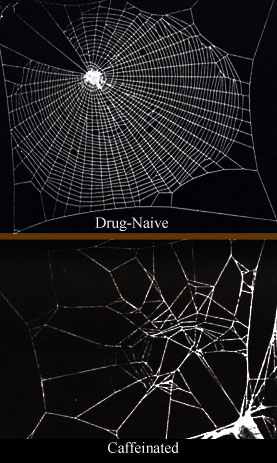Drug naïvety
Lack of previous exposure to a specific drug
Drug naïvety refers to a state in which an individual has not previously been exposed to a particular pharmacological agent. This condition can significantly influence the individual's response to the drug, including its efficacy and side effects. Drug naïvety is an important consideration in clinical trials, pharmacology, and medicine as it can affect the pharmacokinetics and pharmacodynamics of medications.
Pharmacological Implications[edit | edit source]
Drug naïvety can lead to a heightened sensitivity to the effects of a drug. This is because the individual's body has not developed any tolerance or resistance to the drug's effects. As a result, the initial dose of a medication may produce a more pronounced effect in a drug-naïve individual compared to someone who has been previously exposed to the drug.
Pharmacokinetics[edit | edit source]
In drug-naïve individuals, the absorption, distribution, metabolism, and excretion of a drug can differ from those in individuals who have been previously exposed. For example, the metabolic pathways may not be as efficient in processing the drug, leading to prolonged effects or increased risk of toxicity.
Pharmacodynamics[edit | edit source]
The receptor sensitivity in drug-naïve individuals may be higher, resulting in a stronger response to the drug. This can be particularly important in drugs that act on the central nervous system, where receptor modulation plays a significant role in the drug's effects.
Clinical Considerations[edit | edit source]
In clinical practice, understanding a patient's drug naïvety is crucial for determining the appropriate dosage and treatment regimen. Physicians must consider the potential for increased sensitivity and the risk of adverse effects when prescribing medications to drug-naïve patients.
Initial Dosing[edit | edit source]
For drug-naïve patients, starting with a lower dose and gradually increasing it can help mitigate the risk of adverse reactions. This approach allows the body to adjust to the drug's effects and reduces the likelihood of overdose.
Adverse Effects[edit | edit source]
Drug-naïve individuals may experience more severe or unexpected adverse effects due to their lack of prior exposure. Monitoring and adjusting the treatment plan based on the patient's response is essential to ensure safety and efficacy.
Research and Drug Development[edit | edit source]
In drug development, understanding the effects of drug naïvety is important for designing clinical trials. Researchers must account for the variability in drug response among participants who are drug-naïve versus those who are not. This can influence the interpretation of trial results and the determination of therapeutic windows.
Related Pages[edit | edit source]
Search WikiMD
Ad.Tired of being Overweight? Try W8MD's physician weight loss program.
Semaglutide (Ozempic / Wegovy and Tirzepatide (Mounjaro / Zepbound) available.
Advertise on WikiMD
|
WikiMD's Wellness Encyclopedia |
| Let Food Be Thy Medicine Medicine Thy Food - Hippocrates |
Translate this page: - East Asian
中文,
日本,
한국어,
South Asian
हिन्दी,
தமிழ்,
తెలుగు,
Urdu,
ಕನ್ನಡ,
Southeast Asian
Indonesian,
Vietnamese,
Thai,
မြန်မာဘာသာ,
বাংলা
European
español,
Deutsch,
français,
Greek,
português do Brasil,
polski,
română,
русский,
Nederlands,
norsk,
svenska,
suomi,
Italian
Middle Eastern & African
عربى,
Turkish,
Persian,
Hebrew,
Afrikaans,
isiZulu,
Kiswahili,
Other
Bulgarian,
Hungarian,
Czech,
Swedish,
മലയാളം,
मराठी,
ਪੰਜਾਬੀ,
ગુજરાતી,
Portuguese,
Ukrainian
Medical Disclaimer: WikiMD is not a substitute for professional medical advice. The information on WikiMD is provided as an information resource only, may be incorrect, outdated or misleading, and is not to be used or relied on for any diagnostic or treatment purposes. Please consult your health care provider before making any healthcare decisions or for guidance about a specific medical condition. WikiMD expressly disclaims responsibility, and shall have no liability, for any damages, loss, injury, or liability whatsoever suffered as a result of your reliance on the information contained in this site. By visiting this site you agree to the foregoing terms and conditions, which may from time to time be changed or supplemented by WikiMD. If you do not agree to the foregoing terms and conditions, you should not enter or use this site. See full disclaimer.
Credits:Most images are courtesy of Wikimedia commons, and templates, categories Wikipedia, licensed under CC BY SA or similar.
Contributors: Prab R. Tumpati, MD

